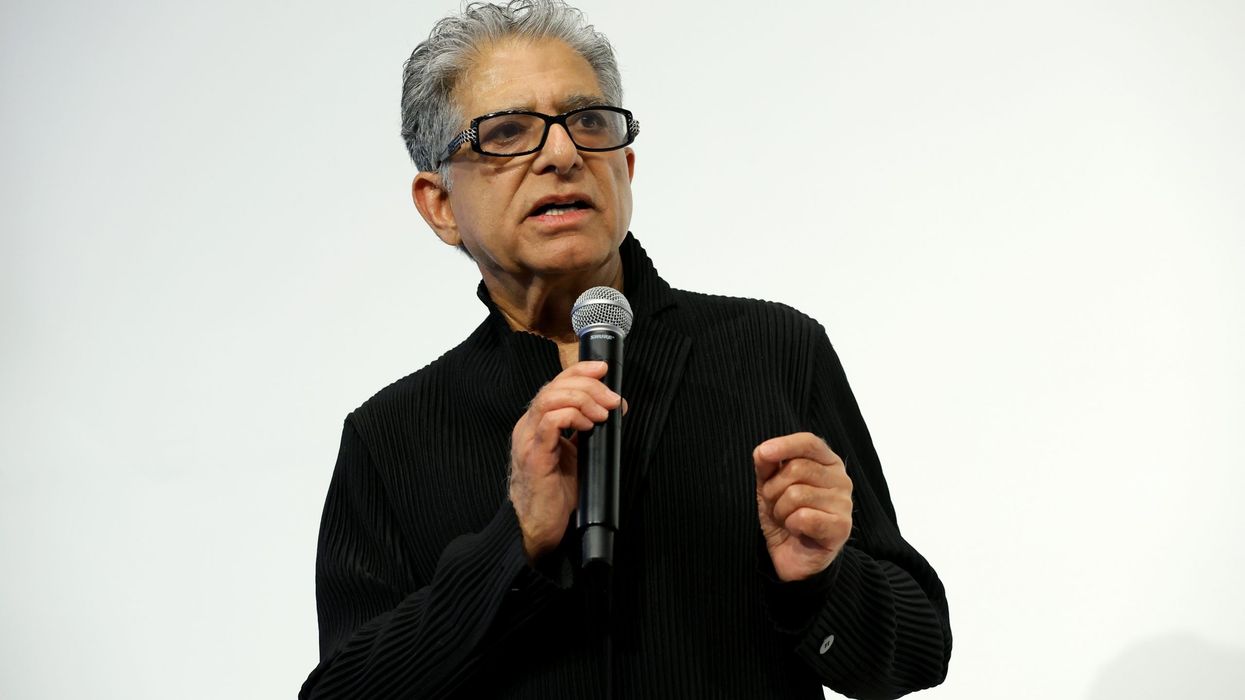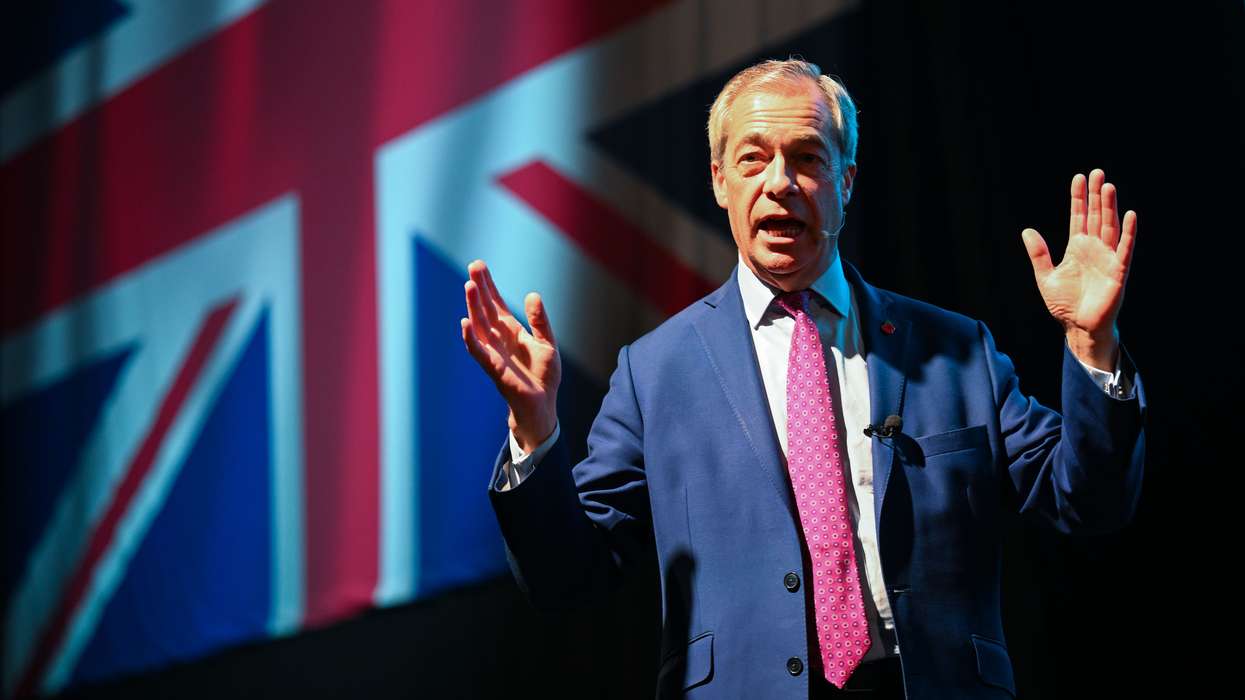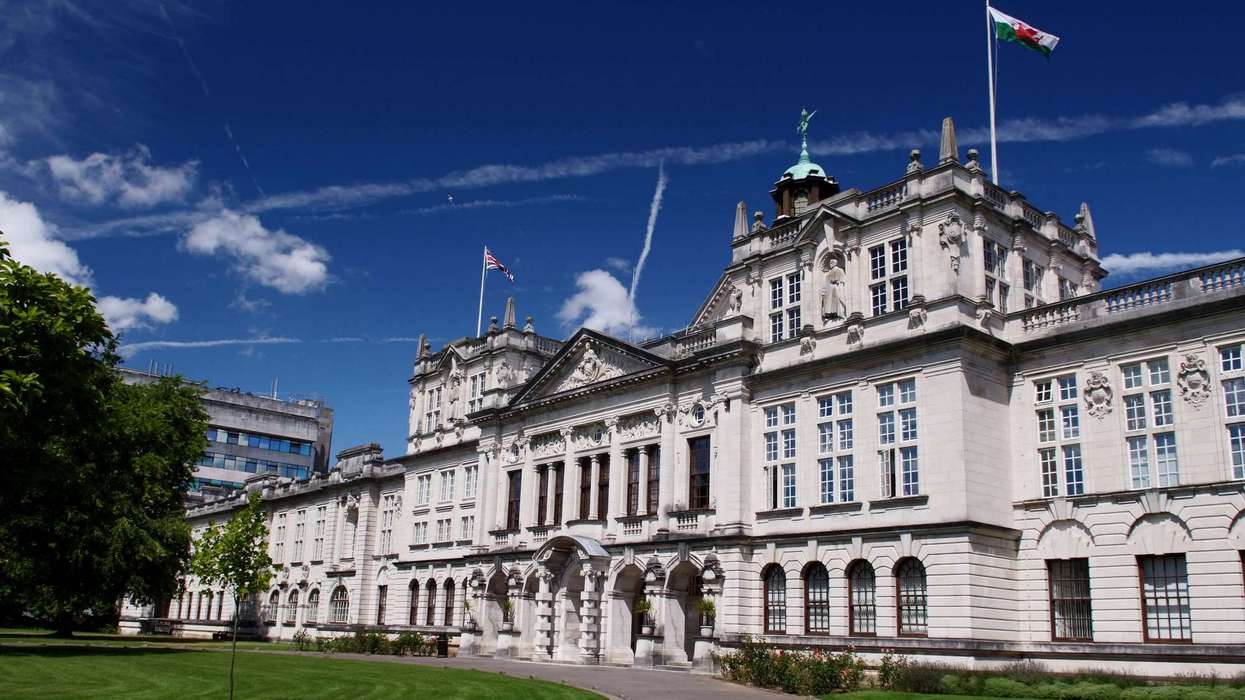Deepak Chopra, the physician and "guy from Oprah", recently visited London to introduce the premiere of the documentary Never Forget Tibet: The Dalai Lama’s Untold Story, lending his star power to the cause of Tibet.
He also recently released his 93rd book, "Living in the Light", which delves into the philosophy behind yoga.
While some have accused the physician of promoting pseudo-science in the past, research has supported some of his ideas about the mind-body connection in disease.
Chopra unapologetically incorporates religion into medicine and wealth into spirituality and is a part-time professor at the University of California, San Diego.
He defends his "quantum healing" theory and wears a combination of Buddhist and Sikh bracelets along with a smartwatch. “Spirituality and technology,” he says, “I’ve got everything covered” he told The Times.
Chopra first met the Dalai Lama more than 30 years ago at the Royal Albert Hall in London, but he describes their relationship as too transcendent for it to be private.
The documentary about the Dalai Lama’s escape from Chinese imprisonment in Tibet in 1959 now serves as a cautionary tale for current events happening in places such as Hong Kong, Taiwan, Korea, Ukraine, India, and Pakistan.
Chopra believes that the film is significant because it highlights how we failed to learn valuable lessons about caring for each other and the environment during the pandemic.
He also expressed that he sees no world leader, except for the Dalai Lama, who is making sense in terms of taking care of each other and the environment.
He states, “They’re putting the interests of themselves first. All of them.”
In fact, Chopra doesn't even show any favouritism towards Rishi Sunak who is of Indian heritage, and believes that what he does matters more than his religion or ethnicity.
And though Chopra acknowledges that some of his fiercest critics such as Richard Dawkins and Brian Cox, are British, he does not think that the British are more sceptical than others.
“I think the British contributed a lot to the world . . . But everything has a lifespan and I think Britain’s dominance is over. It lasted a few hundred years. And that’s pretty good for a small island.”
From Oprah's endorsement to the Duchess of Sussex's support, Chopra's career has been backed by high-profile figures. However, he claims that celebrity endorsements are not useful to him, and people have their own opinions about who he associates with.
Chopra also says he doesn't care about his net worth, as identifying one's self-worth is more important than financial worth.
Asked if he thinks spirituality and wealth are incompatible, Chopra explains that it is not the case in Indian philosophy, where material prosperity is considered one of the four aims of life. He believes in the proper use of money, which is to give.
Chopra's journey began as an exhausted, overworked doctor with a background in neuroendocrinology, studying the "molecules of emotion" such as serotonin, opiates, oxytocin, and dopamine.
For 40 years, Chopra has been talking about the link between emotions and health, specifically the effect of anger and anxiety on the immune system.
Despite being vilified initially, his ideas are now part of medical school training, and he holds a faculty position at the University of San Diego Medical School. Thousands of peer-reviewed journal articles support his findings, and there is a waiting list for his training in integrative medicine.
“Every experience epigenetically modifies your body’s metabolism, second by second,” he says at one point in defence of his “quantum healing” theory. “And I don’t care what mainstream medicine thinks about that, they’re wrong.”
He says his critics “are behind the times, they’re my generation. They say paradigm shifts happen one funeral at a time. So, it’ll take a couple of generations.”
Chopra's book Quantum Healing (1989) caused a lot of trouble for him, forcing him to leave Boston where he was working at a hospital. However, he reissued the book in 2015 with a foreword written by his friend, Harvard professor of neurology Rudolph Tanzi.
Chopra is now working on a new book with a physicist from the University of Alberta, titled Quantum Body, which explores the idea that the body operates as a quantum mechanical object.
The film, Never Forget Tibet: The Dalai Lama’s Untold Story, is set to be released in cinemas nationwide on April 19.




